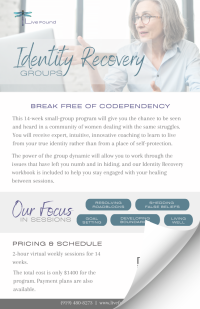What is Narcissistic Victim Syndrome?
Narcissistic Victim Syndrome (NVS) is a complex issue often affecting those who have been subjected to narcissistic abuse. It is NOT an official diagnosis, but has become common terminology around the effects of suffering from narcissistic abuse. Here are several factors you may see at play within a victim of narcissistic treatment:
- They may have been diagnosed with borderline personality disorder, PTSD/CPTSD, or other acute chronic stress disorders.
- They may experience a range of psychosomatic issues that do not respond to treatment, resulting in persistent physical pain and a sense of chaos.
- They are likely struggling to keep their head above water, barely holding life together.
- They feel alone, isolated, confused and at-fault.
The Impact of Gaslighting and Self-Doubt
One of the devastating effects of prolonged narcissistic abuse is gaslighting, leading victims to doubt their own sanity. They may ask themselves if they are the narcissist because they have begun to internalize the abuser’s accusations. This results in:
- Feeling crazy, self-absorbed, untrustworthy, unreliable, and stupid.
- Extreme fear of revealing the truth about the situation, stemming from being told she/he has nothing of value to add.
- A deep sense of shame for not recognizing the abuse sooner and for allowing it to continue for so long.
- Multiple stress-induced physical ailments, e.g. fibromyalgia, GI issues, Lyme’s Disease, mold toxicity, etc.
The Dichotomy of Self-Protection and Distrust
Victims of narcissistic abuse often live in a state of constant dichotomy:
- They do not trust themselves but are fiercely protective of themselves.
- They are unsure of what is happening but know they cannot cope any longer.
- They feel crazy and are not managing their emotions well, often leading to intense anger.
The Role of the Church and Community
Unfortunately, many victims find little support from their religious communities. They are often told to:
- Pray more, endure more, and wait for God to intervene.
- This advice leaves them feeling abandoned and rejected not only at home but also by their church, which fails to recognize the manipulation and abuse they endure.
- No one seems to understand or believe them because their spouse is very good at maintaining a “great” reputation.
The Destructive Cycle of Blame and Shame
When both the spouse and the church fail to protect and support him/her, the victim often finds themself:
- Defending the abuser, believing he/she controls both the harm and the potential for healing.
- Taking on the blame and shame ascribed to them by the narcissist.
- Wondering why God doesn’t care enough to intervene.
Three Key Takeaways for Understanding NVS
- Recognize the Symptoms and Impact: Understand that NVS is a result of prolonged narcissistic abuse, leading to severe psychological and physical symptoms. Acknowledge the victim’s pain and the chaos they experience.
- Address Self-Doubt and Gaslighting Effects: Help the victim identify and challenge the false beliefs instilled by the abuser. Encourage them to rebuild their self-trust and recognize their inherent worth.
- Provide Support and Reject Harmful Advice: Offer compassionate and practical support. Avoid simplistic spiritual advice that dismisses the severity of the abuse. Instead, guide them towards resources and professionals who can help them reclaim their autonomy and find healing.
Conclusion
Narcissistic Victim Syndrome is a serious and debilitating condition resulting from narcissistic and emotional abuse. Understanding the complexities and challenges faced by victims is crucial in providing the right support and guidance. By recognizing the symptoms, addressing self-doubt, and offering compassionate support, we can help victims of NVS find hope and healing. And we can train other people-helpers, coaches and counselors to identify and address the specific nuances of emotional abuse.


